Germany only just emerged from recession in the April-June period (Q2) as its Gross Domestic Product (GDP) was unchanged from the previous quarter (Q1). But the latest interim data suggests the slight improvement in the economy 's fortunes may not last.
Bad news has just arrived: Industrial production in Europe's largest economy fell 1.5% in June compared to May, data released by the Federal Statistical Office (Destatis) on August 7.
The disappointing industrial production results in June were mainly due to declines in the auto sector (down 3.5%) and the construction sector (down 2.8%).
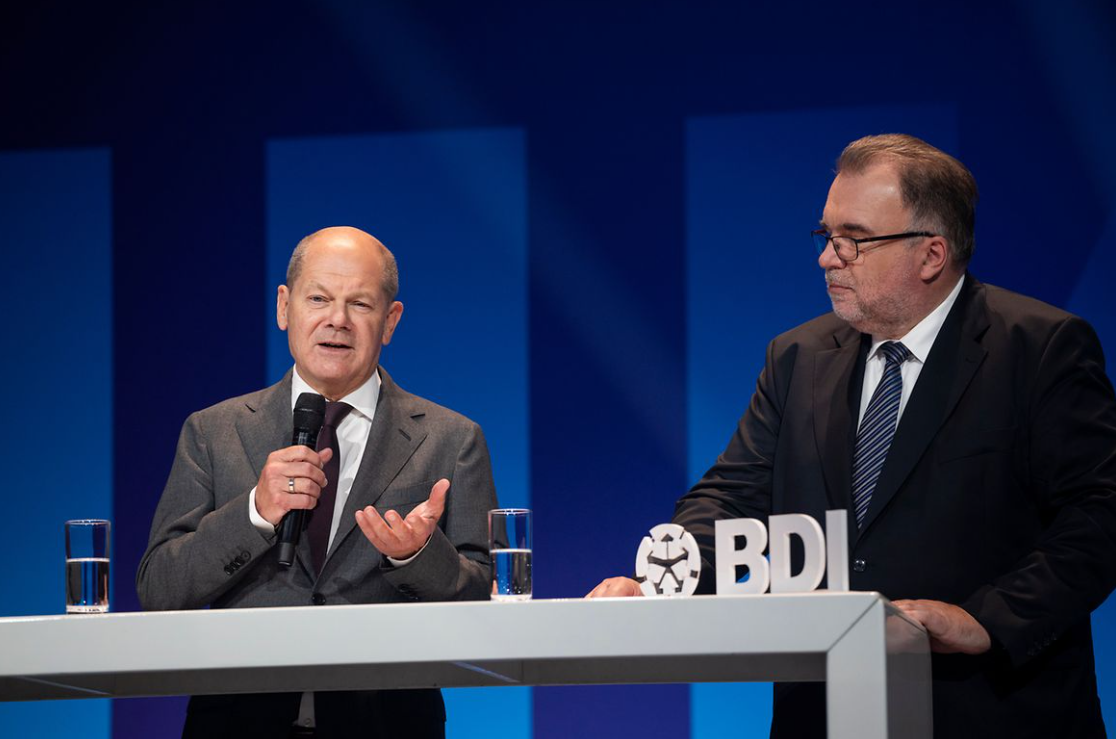
German Chancellor Olaf Scholz (left) and President of the Federation of German Industry (BDI) Siegfried Russwurm at the Industry Day organized by the BDI, June 20, 2023. Photo: Bundeskanzler.de
“We see the decline in industrial output as one of the factors causing a renewed decline in German GDP in the second half of the year,” Franziska Palmas, senior Europe economist at Capital Economics (London-based), said in a note.
Jörg Krämer, chief economist at Commerzbank AG (based in Frankfurt), also predicts GDP will fall later this year.
The International Monetary Fund (IMF) recently sounded the alarm with its announcement that Germany will be the only country out of more than 20 surveyed whose economic output will shrink this year.
However, Germany is still the EU’s largest economy, so if it were to become the “sick man of Europe” again, it would certainly have an impact on other economies.
Pressure from the opposition
Now German Chancellor Olaf Scholz's "traffic light" coalition government , comprising the Social Democrats (SPD), the Greens and the Free Democrats (FDP), is facing a new layer of pressure from the opposition.
The main opposition party, the center-right conservative Christian Democratic Union (CDU), and its Bavarian partner the Christian Social Union (CSU) have just published proposals for an emergency plan (Sofortprogramm).
CDU Party Chairman Friedrich Merz said the plan was aimed at preventing the current recession from developing into a long-term economic weakness.
Proposals include immediately capping electricity prices, stopping all laws and regulations that increase bureaucracy, eliminating overtime income tax, and reducing corporate and other taxes.
Saying that the label “sick man of Europe” was a bit of an exaggeration, Reinhard Houben, the economic policy spokesman for the FDP in the governing coalition, admitted that the country was indeed witnessing an economic recession, but said the opposition’s proposals were not thorough.
“I cannot consider them a policy program,” Houben told DW, saying that the government has plans to boost the economy, including moves long underway by the FDP to cut red tape.
The CDU/CSU is also well aware that German Finance Minister Christian Lindner – who is also leader of the FDP – has proposed no fewer than 50 tax policy measures in his growth opportunity strategy, Mr Houben said.
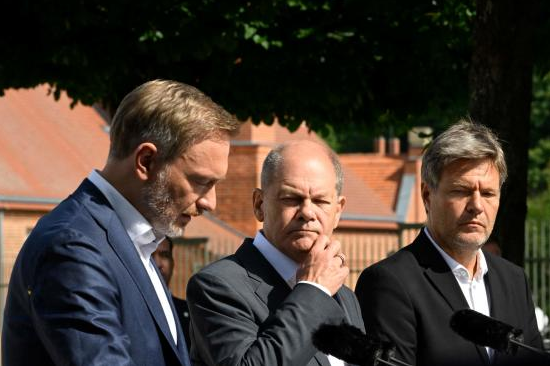
German Chancellor Olaf Scholz (center) with Finance Minister Christian Lindner (left) and Economics Minister Robert Habeck at Meseberg Castle in Gransee, Germany, August 31, 2022. Photo: Le Monde
The other two parties in the ruling coalition – the center-left SPD and the environmentalist Greens – indicate they are on track to strengthen the economy.
The governing parties have jointly developed a package of measures to “protect the economic foundations of the German economy,” said Ricarda Lang, co-chair of the Green Party.
Speaking to the tabloid Bild am Sonntag, Ms Lang insisted the German government was on the right track, while also admitting that Germany's railways, childcare and digitalisation still needed urgent improvement.
Publicly resolve the issue
Meanwhile, Saskia Esken, co-leader of Chancellor Scholz's SPD party, has long advocated subsidies for industrial electricity prices and large investments in infrastructure, while Construction Minister Klara Geywitz (SPD) wants to subsidize the construction industry by offering more tax-free options for those investing in housing projects.
But the German Institute for Economic Research (DIW Berlin) has warned the government against resorting to subsidies and tax cuts.
DIW President Marcel Fratzscher said this is like the story of “the fish and the fishing rod”.
“A stimulus program that only provides an additional $1 billion to the large corporate sector would be counterproductive,” Mr. Fratzscher said. “It would only give them more income, but it would not solve the economic problems.”
Chancellor Scholz, who served as finance minister in Angela Merkel's conservative CDU/CSU-led government, is on holiday and has not made any statement on the economic downturn.
But pressure is mounting on Mr Scholz to do so, particularly from opposition leaders who say he needs to clarify his stance.
Members of the current coalition government are also calling on Mr Scholz to address the issue publicly, said Mr Houben of the FDP.
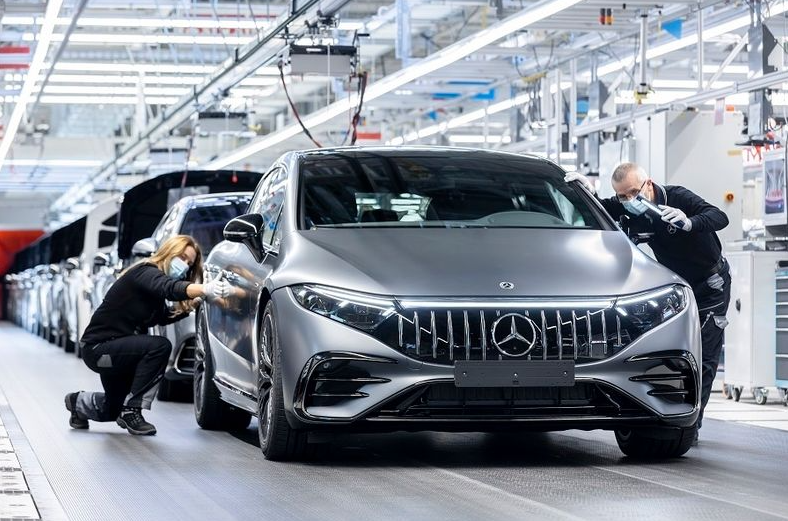
Production of the Mercedes-AMG EQS 53 4MATIC+ in Sindelfingen, Baden-Württemberg, southern Germany. Photo: Automotive News Europe
Meanwhile, German Economy Minister and Vice Chancellor Robert Habeck of the Green Party was keen to send an optimistic message: Germany has been and remains an attractive place to do business. “There are currently more than 20 international companies planning major investments in Germany, approximately 80 billion euros ($88 billion),” Habeck said.
Alongside the bad news, there was some positivity. On August 8, Taiwan’s leading chipmaker TSMC announced plans to build a 10 billion euro ($11 billion) factory in Dresden, in the state of Freistaates Saxony.
This is a collaborative effort between TSMC and Bosch – Germany's leading supplier of technology and equipment for automobiles, and chip companies Infineon of Germany and NXP of the Netherlands.
The German government is said to have earmarked 5 billion euros for the project, according to business daily Handelsblatt, and government officials have spoken of the project as an “extremely important” signal for Germany as an investment destination .
Minh Duc (According to DW, CNN, ING)
Source




![[Photo] Prime Minister Pham Minh Chinh chairs the 16th meeting of the National Steering Committee on combating illegal fishing.](https://vphoto.vietnam.vn/thumb/1200x675/vietnam/resource/IMAGE/2025/10/07/1759848378556_dsc-9253-jpg.webp)









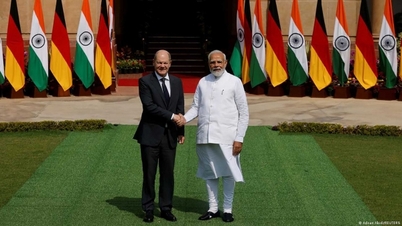
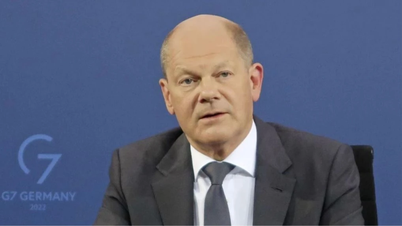

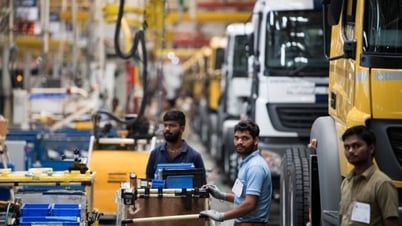




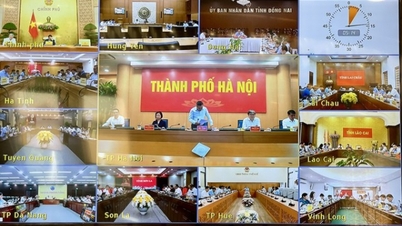
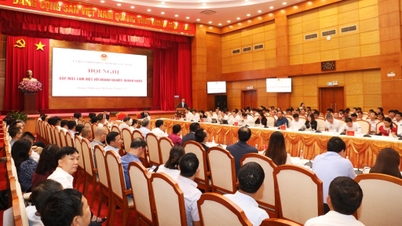
























































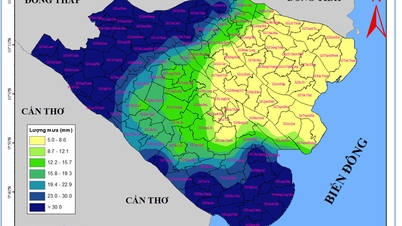



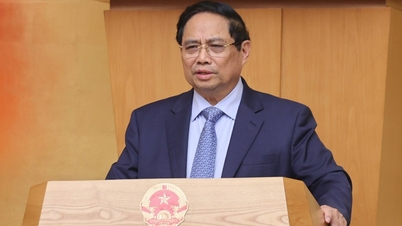


















Comment (0)